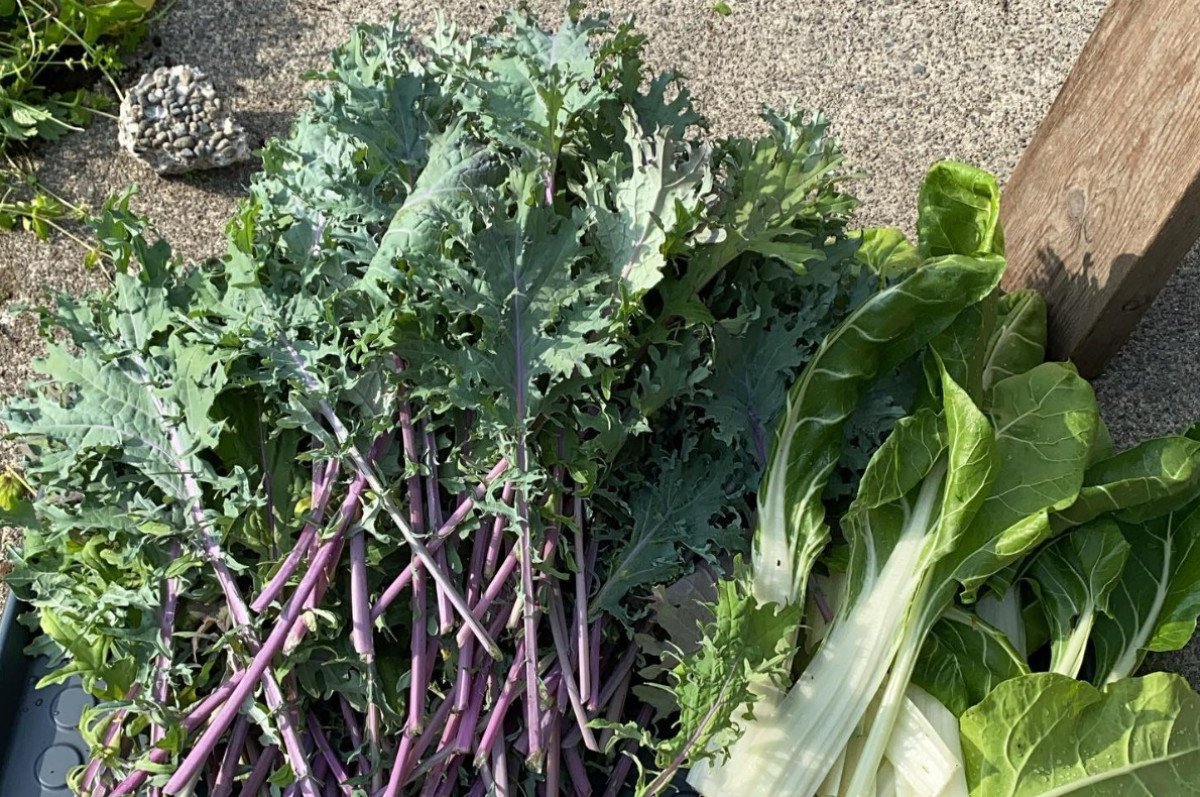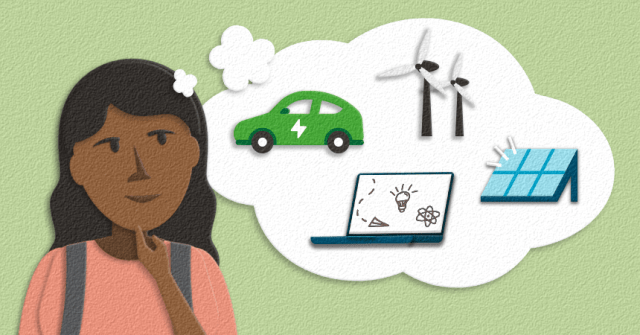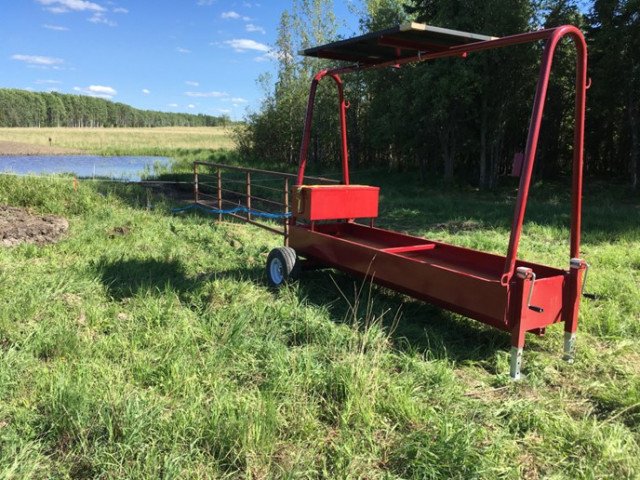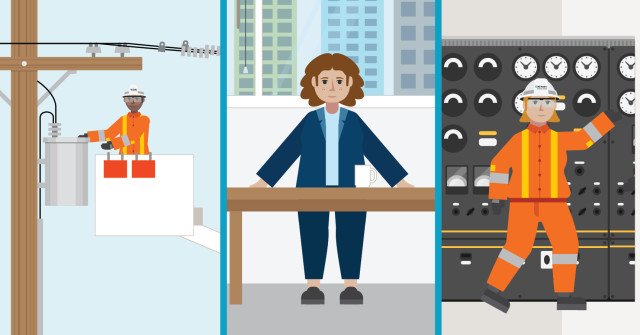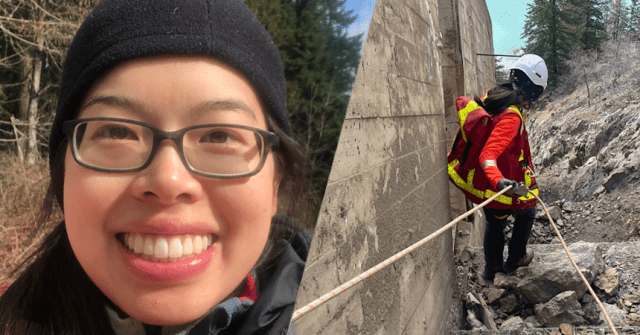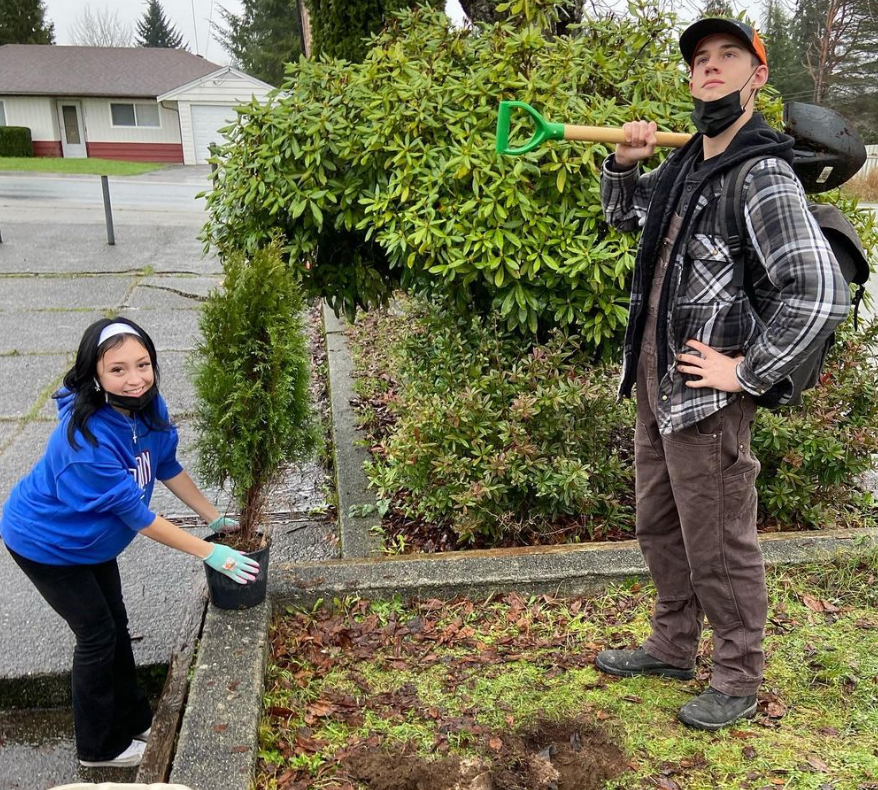
Members of the Garibaldi Green Group planting trees.
Source: Garibaldi Green Group Instagram
Want to build a green team? Start with one small thing
Moein Ferdosian doesn't see himself as some sort of school green team guru. Nor does he think he's got it all figured out.
Just ask him how difficult is to watch your high school green team graduate and, in the shadow of the COVID-19 pandemic, try to fill their shoes by recruiting a whole new crew.
Or ask him what it's like to try to secure funding for raised planter beds to help prevent insects from ruling over the upstart veggie garden in the courtyard of his school, Garibaldi Secondary in Maple Ridge.
"We are learning a lot about pests," he says, with a small laugh. "But that's a good learning opportunity, both for students and teachers. The vegetables we were growing on the ground were attacked viciously."
The vegetable garden, which has mainly produced root vegetables and hardy plants such as kale so far, ranks as a thorny, complicated project. Even with the volunteer help of a local gardener who really knows her stuff, there are challenges including the fact that while planting starts in the spring, a lot of the growing occurs when school's out over the summer.
"I wouldn't be able to run the show without the support of the staff, especially Helen Carelse, the teacher who has been helping me run the group in the past few years," says Ferdosian.
Before you consider founding a green team at your school and taking on a big project, here are a few pieces of advice from Ferdosian.
1. To start, keep it simple
There are all sorts of actions a green team can take on at a school, says Ferdosian. Particularly at the start, don't get too ambitious.
"Take one thing, and if it's successful great," he says. "If it's not, try it a different way, or try something else. Do one thing at a time, based on the size of your team. When I started, I had all these grand ideas, but I learned quickly that as a teacher you already wear so many hats that taking on another thing is a lot to begin with."
Ferdosian, who also coaches sports teams at Garibaldi, eventually settled on recycling. He says the district's single stream recycling program puts plastics and paper in the same containers, and that can lead to contamination. So the green team placed additional boxes alongside bins to separate the paper and cardboard from the plastics.
He also heard that Staples has a pen, and marker recycling program that ensures those items don't end up in the landfill. So he picked up recycling boxes from a local outlet and set up bins he monitors, personally, from each classroom at the school.
"That's one thing the Green team doesn't do as a group," he says. "It's just something I do as a participant in the green group."
2. Don't lecture, educate
Born in Iran, Ferdosian arrived in Maple Ridge in Grade 5, and through his studies in the district, his pursuit of a biology degree at SFU, and volunteering at the Vancouver Aquarium, developed the idea that we all have a "moral obligation" to do our part for sustainability. But in the school setting, he strongly warns against getting preachy about it.
"I can't finger-point, because if I do that it turns into a blame game, and that's happening too much already," he says. "It can be polarizing, and it really can be applied to any aspect of social justice, and environmental justice. So with the green group, I just do my part and make myself available to help others when they need my help to do their part."
3. Make actions topical and relatable, when you can
Linking a project around water use to current news such as the dry conditions that led to drought last summer is an easy way to make a topic relatable. But it's not always easy take a piece of big environmental news and bring it home.
"The recent breakthrough around fusion power was fantastic, and we talked about it at school," he says. "But while it's something that maps to the curriculum in several grades, it wasn't related to the unit, about water use, that we were teaching at the time."
When the news isn't directly linked to a classroom lesson, it's worth sharing. Ferdosian uses a digital chat space to share news with students, even after hours and on weekends.
4. Launch an environmental science course, and target projects
Depending on student interest, Ferdosian teaches one or two Grade 11 and/or Grade 12 environmental science classes at Garibaldi each year. The class maps to B.C.'s core curriculum's Big ideas – slightly different for Grade 11 and Grade 12 - that centre around sustainability and how human practices affect ecosystems.
Student projects have ranged from auditing how many non-recyclable items in the school end up in recycling bins, to exploring how – in the days before plastic bags were banned at local grocery stores – students might convince a store to at least offer paper bags as an option. And once in awhile, a really Big idea happens.
Ferdosian once introduced the idea of students analyzing how their families might use less water at home. One student has parents who operate greenhouses that use a well as one source of water. "The student said 'We actually have a second well we don't use. My project is going to be helping my dad install the piping so that we can use that well water too, so we don't have to use city water for the greenhouse'. And he did it – It just blew me away."
5. Rally around global events like Earth Day
The mantra at earthday.ca is to 'celebrate every day.' But Earth Day, and the broader Earth Week that coincides with it, is an ideal focal point for green group promotions and actions at schools.
Ferdosian's green group has used Earth Week at Garibaldi Secondary to prompt the school cafeteria to offer more vegetarian options – possibly with vegetables from Garibaldi's own garden – and to even host a vegetarian day where no meat was served. The green group put posters up around the school to educate students and teachers about the environmental impacts of meat production.
"We do something around Earth Week every year," he says. "Every day during the week, there's an event to participate in, and we raise money for environmental causes. One example is raising funds for the Alouette River Management Society, which we have real close ties to."
Earth Day 2023 is on Saturday, April 22.
Educational resources around sustainability
Here are some in-class activities that provide context around what green groups might focus on, along with what can be explored in environmental science and other classes. For specific guidelines around sustainability education at schools, see the B.C. Government's sustainable schools best practices guide.
Exploring perspectives on sustainability (Grades 11, 12)
Students explore perspectives on sustainability, and then use two-eyed seeing to identify the strengths of Western and Indigenous perspectives on sustainability.
Ecosystem goods and services (Grades 11, 12)
Three activities exploring ideas and methods that can be used to understand the value goods and services provided by our ecosystems.
Where do you stand on energy conservation (Grades 10-12)
Exploration of where students stand when it comes to energy, conservation, climate change and sustainability.
Reduce, reuse, or recycle? (Grade 11)
After an introduction on the "waste hierarchy" of reduce, reuse, recycle, and a review of the law of conservation of mass, students assess the sustainability of the three options.
Energy conservation in action (Grade 9)
An energy survey gives students the information they need to be able to take action on saving energy.
School energy investigation (Grade 7)
Students investigate how the school uses energy and come up with recommendations to reduce the impact on climate change.
What really happens to the plastic you throw away? (Grades 5,7)
Students discuss the message of a video about the journey of three plastic bottles from manufacturing to the landfill, ocean or if they're recycled into a new product.
Sustainability and you (Grades 4-7)
Individual students and the class, discuss what sustainability means, with an option to extend the thought starter to research into how local Indigenous communities define sustainability.
